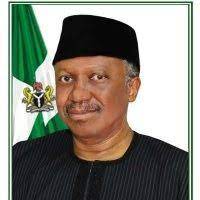The Federal Ministry of Health, on Tuesday, said it had put measures in place to strengthen the country’s health security.
The Minister of Health, Dr Osagie Ehanire, said this at the maiden edition of the Nigerian Conference of Applied and Field Epidemiology (NiCAFE) 2021 in Abuja themed: “Building Back Better: COVID-19 and other disease outbreaks.”
The minister said the measures included the establishment of National Reference Laboratory and the establishment of at least one molecular laboratory in all the states of the federation and the FCT.
Reports indicated that the conference, organised by the Nigeria Centre for Disease Control (NCDC), was aimed at strengthening the country’s preparedness for emergencies in the event of outbreak of infections.
The conference provided an opportunity to discuss the epidemiology of infectious diseases in Nigeria and their impact on regional and global health security.
Ehanire, who was represented by the NCDC Director-General, Dr Chikwe Ihekweazu, said Nigerians must think of the other public health challenges that could emerge in the future.
The minister stressed that the country’s population was growing at a rapid rate and this would have an impact on the health system over the next few years.
“This is the reason we’re having the NiCAFE conference because we are not only faced with the pandemic in Nigeria but with multiple disease outbreaks.
“Every single week, we detect cases of yellow fever, Lassa fever, measles, and other infectious diseases.
“In Nigeria, we’ve had over 128,000 infections and more than 2,000 deaths officially. It pains me to say that there is the possibility that we are yet to see the worst of this pandemic,” he added.
He stressed that the COVID-19 pandemic had turned lives upside down, noting that it had affected over a 190 million people and sadly, the world had lost over four million globally.
The minister, however, expressed commitment to addressing the challenges posed by infectious diseases such as the coronavirus pandemic and Cholera.
The Chief Scientist of the World Health Organisation (WHO), Dr Soumya Swaminathan, reflected on lessons from the COVID-19 pandemic, including research, development and equitable access to COVID-19 vaccines, therapeutics and diagnostics.
Swaminathan, who spoke on “Building Back Better on COVID-19 and other diseases,” highlighted countries, territories and variants of concern.
She said there were already 124 countries affected by the Delta variant.
The WHO, representative to Nigeria, Dr. Walter Mulombo, noted that the COVID-19 pandemic had, indeed, exposed critical gaps in the health systems of African countries.
“We need to review lessons learned so far in order to inform future public health responses, “ Mulombo advised.
In her goodwill message, Dr. Rebecca Martin, Director Centre for Global Health, Centre for Disease Control (CDC), said the world had learnt from the COVID-19 pandemic, noting that the public health workforce was a cornerstone of every country’s health security.
Martin stressed that working together to strengthen routine immunisation programmes, had supported the COVID-19 response and vaccination programme in the country.
Also Speaking, Director General, The West African Health Organisation (WAHO), Prof. Stanley Okolo, said the NCDC had been a leading light in the response against the fight against the COVID19 pandemic in the country.
“Through solidarity, collaboration, coordination and communication, I believe the region is better prepared to continue to fight the pandemic and for future health security threats,” Okolo re-assured.
Reports indicated that the conference was organised by NCDC, in collaboration with partners, and scheduled to hold between July 26th and 28th.
The NiCAFE conference brought together public health professionals, laboratory scientists, field epidemiologists, researchers and health care professionals and members of the public.

